Blog • Published on:October 5, 2025 | Updated on:October 5, 2025 • 11 Min
Everything You Need to Know About Living in Dominica
Dominica offers a side of the Caribbean that feels authentic and alive. Home to 62,700 people, it’s defined by mountainous rainforests, hot springs, waterfalls, and volcanic beaches.
English is the official language, the East Caribbean Dollar is pegged to the US dollar, and life flows at a relaxed pace.
What draws people here? A tax-friendly system with no wealth or inheritance taxes, affordable real estate, and a well-established Citizenship by Investment Program.
Add a steadily growing expat community and improving flight links to the US and Europe, and Dominica becomes more than a retreat. It’s become a serious place to build a new chapter.
Why Choose Living in Dominica
Untouched natural beauty
Dominica is often called the “Nature Island”. For good reason. More than two-thirds of the country is covered in rainforest, dotted with waterfalls, hot springs, and hiking trails that lead to volcanic peaks.
For divers, the surrounding waters are rich with reefs and marine life. This setting gives daily life a backdrop that feels both adventurous and serene.
A lifestyle built on calm and community
Life in Dominica is slower and less hectic compared to larger Caribbean islands. There are no crowds of cruise-ship tourists competing for space, and the sense of community is strong.
Many expats describe the lifestyle as grounded, you’re close to nature, fresh food is abundant, and daily stress levels drop dramatically once you settle in.
Financial appeal and tax advantages
Dominica’s tax framework is one of its strongest pulls. The island has no wealth, inheritance, or capital gains taxes.
Income earned outside Dominica is not taxed, which is especially attractive for international entrepreneurs and remote professionals.
Combined with affordable housing and lower living costs than most of the region, Dominica strikes offers both lifestyle and financial benefits.
Growing expat presence
The expat population has grown steadily in the last decade, driven by retirees, business owners, and families seeking a stable base.
A large share arrive through the Citizenship by Investment Program, while others come for the lifestyle and end up staying.
Communities in Roseau, Portsmouth, and along the northern coast make it easy to connect with like-minded residents.
Dominica Citizenship by Investment Program
Dominica’s Citizenship by Investment Program (CIP), dating back to 1993, is one of the most cost-effective ways to gain a second passport.
If you want to see the requirements and investment options, you can explore the program here.
Investment Options
You can qualify through two main routes:
- Economic Diversification Fund (EDF):
• $200,000 for a single applicant
• $250,000 for a main applicant with up to three dependents
• Additional dependents: $25,000 (under 18) or $40,000 (over 18)
- Real Estate Investment:
• Minimum $200,000 in approved property (freehold, hotel shares, or land)
• Hold for at least 3 years (5 if reselling to another CIP applicant)
Benefits of Dominican Citizenship
- Visa-free, visa-on-arrival, and eVisa access to over 140 countries, including the Schengen Area
- No requirement to live in Dominica before or after obtaining citizenship
- Dual citizenship permitted
- Tax-friendly system: no wealth, inheritance, gift, or capital gains tax; no tax on foreign income
Application Process
- Choose your investment route
- Work with a licensed agent to prepare and submit documents
- Government conducts due diligence checks
- Receive approval in principle
- Complete your investment and obtain citizenship and a passport
Timeline and Requirements
- Processing time: usually 6–8 months
- Applicants must be 18 or older, in good health, with a clean criminal record
- Proof of source of funds is required
Cost of Living in Dominica
Dominica is more affordable than most Caribbean islands, especially when it comes to housing and daily life.
The biggest difference lies in rent and real estate, while imported goods and certain services can cost more than you’d expect.
Housing and Real Estate
- Rent for a three-bedroom apartment in Roseau averages $700–800/month.
- Outside the capital, similar homes can be found for $450–700/month.
- Property prices remain low compared to the region, with opportunities to buy land or houses at a fraction of what you’d pay in neighbouring islands.
Daily Expenses
- Local produce, fish, and basic goods are reasonably priced, especially if you shop in markets.
- Imported food, electronics, and branded products are noticeably more expensive.
- On average, a single person can live comfortably on $1,000/month, while a family may spend around $3,500/month depending on lifestyle.
Utilities and Services
- Basic utilities for a standard apartment average $140/month.
- High-speed internet costs about $70/month.
- Mobile plans are inexpensive, averaging $45/month for calls and data.
Transportation
- Public minibuses are common and cost just over a dollar per ride.
- Taxis are more expensive but still cheaper than in many Western countries.
- Owning a car is useful outside Roseau, though fuel prices are slightly higher than the U.S. average.
Best Areas to Live in Dominica
Choosing where to settle depends on whether you prefer city convenience, coastal living, or quiet immersion in nature.
Roseau – The Capital
Roseau is the island’s commercial and cultural hub. You’ll find government offices, schools, shops, and the main port here.
Housing ranges from modest apartments to larger family homes, and while it’s more urban than the rest of Dominica, it still feels relaxed compared to other capitals in the region.
Roseau is ideal if you want quick access to services, restaurants, and community life.
Portsmouth – The Northern Town
Located on the northwestern coast, Portsmouth is known for its natural surroundings and vibrant student presence thanks to the nearby medical university.
The town is close to beaches, rivers, and Cabrits National Park, making it a great choice for those who want nature at their doorstep but still value a sense of community.
Marigot – Coastal Living
Marigot, home to Douglas–Charles Airport, offers convenient connections for frequent travellers.
It has a mix of local character and international presence due to tourism, and you’ll find coastal properties with direct access to the sea.
This area suits expats who prioritise travel convenience and ocean views.
Calibishie – Rural Paradise
On the northeast coast, Calibishie is known for its untouched beauty, red sandy beaches, and lush green hills.
It’s quieter than other towns, popular with retirees, eco-conscious residents, and those looking for a slower lifestyle.
The village has a small but welcoming expat community and is perfect if you want to immerse yourself in authentic island life.
Legal Requirements for Living in Dominica
Visa Rules
Citizens of the U.S., UK, EU, and many Commonwealth countries can stay in Dominica visa-free for up to 6 months.
For longer stays, you’ll need to apply for residency or citizenship.
Residency Permits
- Temporary Residency: Granted for one year, renewable. Applicants must show proof of income or support and a clean record.
- Permanent Residency: Available after 5 years of living in Dominica (reduced to 3 years if married to a Dominican citizen).
- Work Permits: Required if you plan to be employed locally, usually tied to a specific job contract.
Property Purchase
Foreigners can buy property in Dominica but need an Alien Landholding License if they’re not applying through the Citizenship by Investment Program.
The license fee is typically 10% of the property value. Those investing via the CBI route are exempt from this license requirement.
Business Setup
To start a business, expats must register with the Companies and Intellectual Property Office.
Options include forming a local company or registering as a sole trader. Corporate tax stands at 25%, but incentives exist in sectors like tourism, agriculture, and renewable energy.
Healthcare in Dominica
Public Healthcare
Dominica has a network of primary health centres across the island, with one main hospitals the Dominica-China Friendship Hospital in Roseau formerly known as Princess Margaret Hospital.
Public healthcare is affordable but can be limited in terms of advanced treatments and equipment.
Many residents rely on it for routine care but travel abroad for specialized procedures.
Private Medical Options
Private clinics and doctors are available in Roseau and larger towns, offering quicker access and more personalized service.
While standards are good for general practice, serious or complex cases are often referred to Guadeloupe, Martinique, or the U.S.
Health Insurance
Expats are strongly advised to have international health insurance that covers evacuation or treatment overseas.
Popular providers like Cigna, Allianz, and Bupa operate here and offer plans tailored for Caribbean residents.
Education in Dominica
Local Schools
Dominica has a mix of public and private schools following a curriculum based on the British system.
Primary and secondary education is available across the island, though resources in public schools can be limited compared to international standards.
Private schools often provide smaller class sizes and more extracurricular options.
International Education
While Dominica does not have many fully international schools, some private institutions offer English-based education with elements of international curricula.
Families seeking broader international options often choose online schooling or boarding schools in nearby Caribbean islands.
All Saints University
A major presence in Portsmouth, All Saints University School of Medicine attracts international students and professionals.
Its reputation has made Portsmouth more international, with housing, services, and expat communities built around the student population.
Working and Doing Business in Dominica
Employment Opportunities
Dominica’s economy is driven by tourism, agriculture, and services. Jobs for expats are most common in hospitality, eco-tourism, education, and healthcare.
However, opportunities are limited, and many foreigners come with remote jobs or their own business ventures rather than seeking local employment.
Starting a Business
Expats can register a company through the Companies and Intellectual Property Office. Options include:
- Sole proprietorship or partnership for small ventures
- Limited liability company for larger operations
Sectors with strong potential include eco-tourism, organic farming, renewable energy, and boutique real estate. The government actively encourages foreign investment in these areas.
Tax Benefits and Incentives
Dominica has a corporate tax rate of 25%, but multiple incentives are available:
- Tax holidays for investments in priority sectors
- Exemptions on import duties for equipment and materials
- No wealth, inheritance, or capital gains taxes
- No tax on income earned outside Dominica, which is a major draw for entrepreneurs running global businesses remotely
Lifestyle and Culture in Dominica
Everyday Rhythm
Most activity in Dominica happens early. Markets in Roseau and Portsmouth open at dawn, where locals sell fresh fruits, vegetables, and fish caught the same morning.
Shops and government offices usually close by 4 pm, and Sundays are noticeably quiet, with most businesses closed.
Community and Traditions
Dominicans place strong emphasis on community and faith. Church is central to social life, and national celebrations like Creole Day and Carnival are not just events but cultural anchors where traditional music (cadence-lypso, bouyon) and Creole cuisine are showcased. Integration often comes naturally once you participate in these gatherings.
Food and Dining
The cuisine is rooted in what’s grown or caught locally: callaloo soup, mountain chicken (a local frog delicacy), fresh seafood, plantains, and dasheen.
Eating out is inexpensive at small roadside eateries, though international restaurants are limited outside Roseau.
Most expats rely on local produce markets and supplement with imported goods from supermarkets.
Outdoor Living
Unlike many islands where beaches dominate, Dominica’s lifestyle revolves around rivers, hot springs, and rainforest hikes.
Expats often join groups for diving at Champagne Reef, canyoning tours, or treks to the Boiling Lake.
The island’s terrain makes it ideal for people who value active, nature-focused living rather than resort-style leisure.
Expat Social Scene
Expat gatherings tend to cluster around Portsmouth (with its university-linked international presence) and Roseau (the business and diplomatic hub).
Social groups often organise through Facebook communities and InterNations, while long-term expats highlight that personal introductions carry more weight than formal networking.
Practical Aspects of Moving to Dominica
Moving Your Belongings
- Most goods arrive via sea freight routed through Guadeloupe, Martinique, or Antigua.
- Air cargo is possible via Douglas–Charles Airport, but more expensive.
- Customs is straightforward with proper paperwork, but delays are common.
- Many expats furnish locally, and Dominica is known for affordable, handcrafted wooden furniture.
Banking
- Currency: Eastern Caribbean Dollar (EC$), pegged at 2.7 = US$1.
- Main banks: Republic Bank, National Bank of Dominica, CIBC Caribbean
- Documents needed: passport, proof of address, bank reference.
- Online banking exists, but many expats keep overseas accounts for smooth international transfers.
Transportation
- Public minibuses: EC$2–5 per ride, stop running early evening.
- Taxis: negotiate fare in advance, no meters.
- Cars: most expats buy a used SUV due to rough terrain. Driving is on the left.
- Permit: temporary local driver’s license required, easy to obtain with a foreign license.
Investing in Your Future with Dominica
Relocating to Dominica is a long-term investment in stability, opportunity, and quality of life. The island combines natural beauty with financial advantages and a globally respected Citizenship by Investment Program.
We guide families and entrepreneurs through every step, from selecting the right investment path to securing Dominican citizenship with confidence.
Start your application today and turn the Nature Island into your next chapter.
FAQs on Living in Dominica and Citizenship
How much does it cost to live in Dominica as an expat?
On average, a single person spends around $1,000/month, while a family of four might need $3,500/month, depending on lifestyle and housing choices.
Can foreigners buy property in Dominica?
Yes. Foreigners can purchase property, but those not applying through the Citizenship by Investment Program must obtain an Alien Landholding License, which costs 10% of the property value.
How long does it take to get Dominican citizenship by investment?
The process typically takes 6–8 months from application submission to receiving your passport, provided all documents and due diligence checks are in order.
Is Dominica safe for expats and families?
Dominica is considered one of the safest Caribbean islands, with a low crime rate compared to the region. Most expats feel comfortable living in both urban and rural areas.
Do I need to live in Dominica to keep my citizenship?
No. The Citizenship by Investment Program does not require physical residence before or after approval, making it flexible for global investors and frequent travellers.
References
Dominica Citizenship by Investment Unit. (n.d.). Dominica Citizenship by Investment Programme. Retrieved from https://www.cbiu.gov.dm/
Discover Dominica. (n.d.). Visa & Entry Requirements. Retrieved from https://discoverdominica.com/en/visa-and-entry-requirements
Government of the Commonwealth of Dominica. (n.d.). Government of Dominica official site. Retrieved from https://dominica.gov.dm/
Ministry of Justice, Immigration and National Security, Dominica. (n.d.). Ministry of Justice, Immigration and National Security. Retrieved from https://rialnet.org/?q=en%2Fnode%2F656
Written By

Laura Weber
Laura Weber is a legal expert in international tax planning and citizenship by investment. With over a decade of experience, Laura helps individuals and families navigate complex legal frameworks to secure dual citizenship and global residency options, particularly in the Caribbean and Europe.
Related Articles



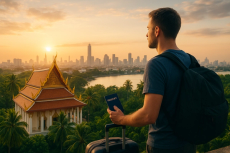


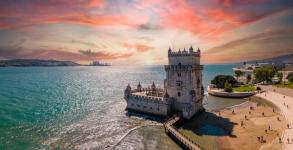

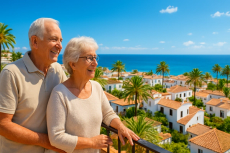
Recently Published


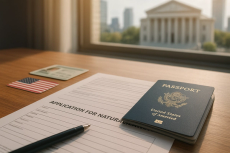

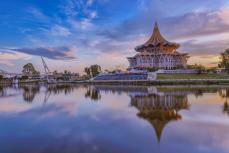




Book a free consultation


